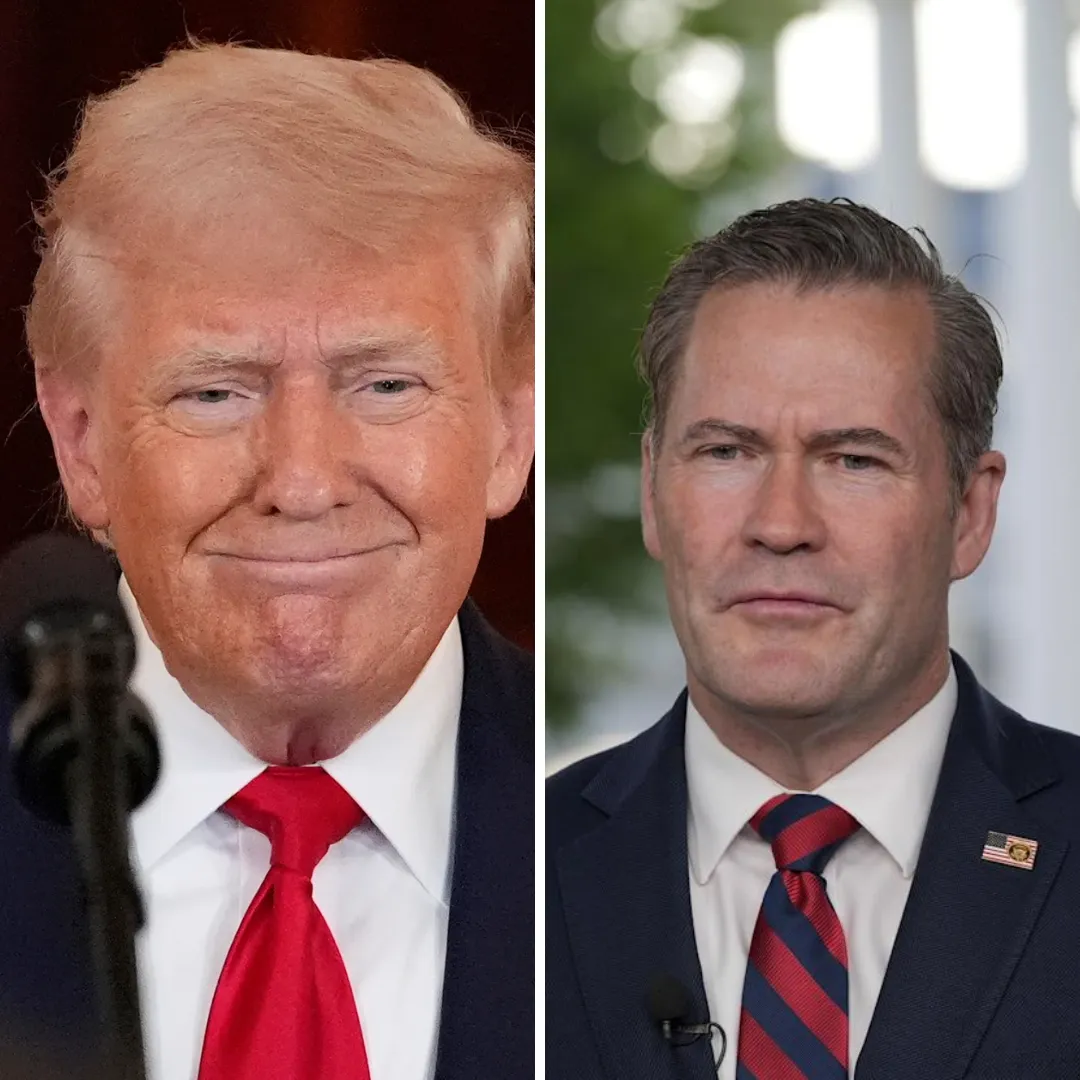
Senate Majority Leader Chuck Schumer issued a stark warning Sunday, saying that if President Donald Trump refuses to comply with a Supreme Court order, "extraordinary action will be necessary" to preserve the rule of law.
Schumer’s comments mark one of the most serious signals yet of growing concern among Democratic leaders about how the administration may respond to ongoing legal battles and the authority of the nation’s highest court.
Speaking during a televised interview, Schumer emphasized that no president, regardless of party or popularity, can be allowed to place themselves above the Constitution.
"If the President disobeys a Supreme Court order, extraordinary action will be necessary," Schumer said. "This is not about politics. This is about the fundamental principles of our democracy."
Schumer did not detail precisely what kind of "extraordinary action" he had in mind, but his words suggested that Democrats are prepared to consider all available options, from congressional sanctions to potential impeachment proceedings, should Trump openly defy a ruling by the Court.
The senator’s remarks come amid a tense standoff between the Trump administration and the judicial branch. Several key cases with profound implications for presidential powers and accountability are currently before the Court. Among them are challenges related to immigration enforcement, executive authority, and the limits of wartime powers under domestic law.
The broader context is equally fraught. Since returning to office in 2025, President Trump has made clear his disdain for what he often calls "unelected judges" and "activist courts." He has repeatedly questioned the legitimacy of judicial rulings that constrain his policies and has hinted that he views certain court decisions as suggestions rather than binding orders.
Such rhetoric has alarmed constitutional scholars, legal experts, and political leaders across the spectrum, who warn that undermining judicial authority could unravel the system of checks and balances that has anchored American democracy for over two centuries.

Schumer’s warning is a preemptive move, signaling that Congress is watching closely and is prepared to act should the President cross a red line. "No one is above the law, not even the President of the United States," Schumer said. "If we allow one person to ignore the courts, we are on a slippery slope to authoritarianism."
Schumer added that protecting the judiciary is not a partisan issue, but a patriotic duty. "Today it might be a president from the opposing party who defies the Court. Tomorrow, it could be someone from your own party. That is why adherence to the rule of law must be non-negotiable," he said.
While Schumer’s remarks were focused on principle, the political implications are enormous. A direct defiance of a Supreme Court order by a sitting president would constitute a constitutional crisis on a scale not seen since the Nixon administration, and perhaps even more severe.
It would raise urgent questions about enforcement mechanisms, the role of Congress, and the capacity of American institutions to withstand an assault from within.
Already, conversations are underway among legal scholars and lawmakers about potential responses. Some suggest that Congress could invoke its contempt powers. Others argue that impeachment would be the only viable remedy if a president refuses to obey a clear, lawful order from the Supreme Court.
"This is not something that anyone wants," Schumer said. "But if we are forced into a corner where the only way to defend the Constitution is to take extraordinary action, then that is what we must do."
Across Washington, reactions to Schumer’s comments were swift and varied. Progressive lawmakers praised him for drawing a clear line in the sand, while some Republicans accused Schumer of stoking fears unnecessarily.
Senator Mitt Romney, one of the few Republicans who has frequently criticized Trump, expressed support for Schumer’s position.
"The rule of law must be upheld," Romney said in a statement. "If any president refuses to comply with a lawful order from the Supreme Court, Congress must act."
Meanwhile, Trump allies dismissed Schumer’s warning as political posturing. Representative Jim Jordan accused Schumer of "saber-rattling" and "trying to intimidate the President."
"The American people elected Donald Trump to drain the swamp, not to bow down to it," Jordan said. "We trust President Trump to defend the Constitution better than Chuck Schumer ever could."
Yet behind the partisan rhetoric, a deeper unease is spreading among political insiders. For all of America’s history, the assumption has been that even the most powerful officials will ultimately respect the authority of the courts. Should that assumption fail, the entire framework of constitutional government would be at risk.
Legal scholars have noted that the U.S. system relies heavily on norms and voluntary compliance rather than force. The courts do not have armies. Their power rests on the willingness of other branches of government to enforce their decisions.
"If that willingness evaporates, the Constitution becomes a piece of paper," warned one constitutional law professor.
Schumer’s comments are part of a broader effort to prepare the public for what could become an unprecedented confrontation. By speaking out early, Democratic leaders hope to underscore the seriousness of the situation and mobilize political and public pressure to deter any potential act of defiance.
At the heart of the tension is a fundamental disagreement about the nature of presidential power. Trump and his supporters argue for a strong executive unburdened by what they see as bureaucratic and judicial obstruction. His critics warn that such a view is incompatible with a constitutional system built on separation of powers and checks and balances.

Schumer, who has served in the Senate for decades and witnessed numerous political battles, expressed hope that it would not come to a crisis.
"I still believe in the strength of our institutions," he said. "I still believe that, when faced with a clear ruling from the Supreme Court, the President will comply. But hope is not enough. We must also be prepared."
The stakes could hardly be higher. Beyond the immediate political ramifications, the handling of this moment will set a precedent for future generations. Will the presidency remain bound by law, or will a new, more dangerous model of executive power take root?
Schumer’s answer is clear: the time to defend constitutional government is now, not later.
"Our democracy has survived wars, depressions, and great internal divisions," Schumer said. "It has survived because, ultimately, we have chosen the rule of law over the rule of men. We must do so again."
As Washington braces for potential legal showdowns, and as key Supreme Court decisions loom, Schumer’s warning stands as both a call to vigilance and a challenge to all who believe in the American experiment: the rule of law must prevail, or the republic itself is at risk.




